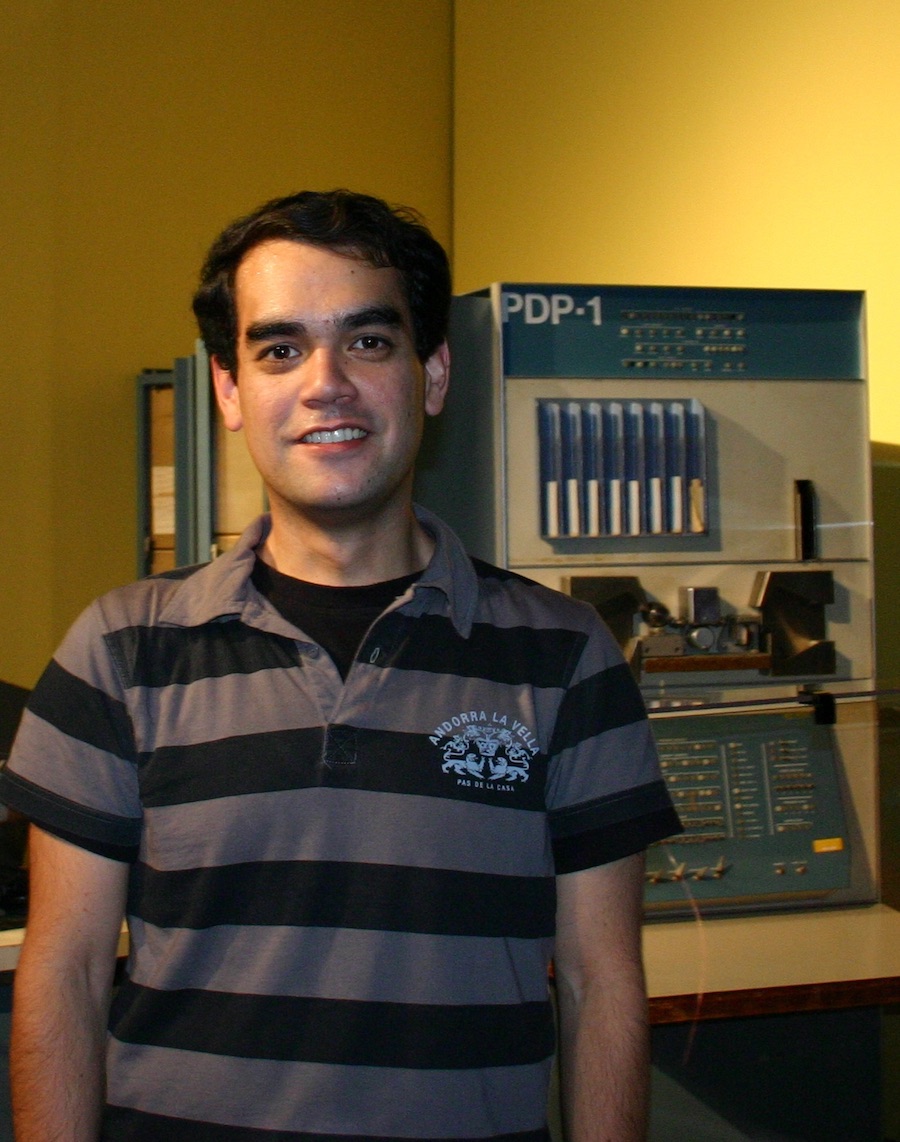About Me
Links and Getting in Touch
I also have accounts on a few of the usual 'social' media platforms, however I mostly just use them to announce new items as they're about to become available and/or to document specific machines; however, for those so inclined, you can also find me at the following places:
- eBay: decarchive
- YouTube: decarchive dot org and Bits and Bytes TVO
- Facebook: decarchive.org
- LinkedIn: linkedin.com/in/dreisiger-metz

A Retrospective
In putting together this website, I came across a post I wrote back in 2008; while it'd be fair to say that my priorities and foci have changed quite a bit in the intervening years, it still captures the essence of what originally drew me to classic computers, hence my including it here…
What's so great about old computers anyway?
If you've made it this far, you probably have at least some vague notion of why people like me love to collect and tinker with older, or classic, computers. (And when I say 'classic computer' I usually mean a minicomputer from the 1960s and 70s, their descendants, or a microcomputer that came out somewhere between the mid-70s and the late-80s.)
Reasons such as nostalgia, and the propensity to collect and hoard things probably come to mind, and you'd be at least partly right — but, for me, it goes way beyond that. The purpose of this posting, then, is to try and explain some of the reasons behind the unusual (and at times frightening) lengths that fans of classic computers go to in rescuing, collecting, using and preserving these “elegant tools from a more civilised age” (with apologies to George Lucas).
In a nutshell, I'm fascinated by older computers because:
- as a generation, they have character — they embody their creators' desires and design quirks;
- they are idiosyncratic — back when there were literally dozens of different models to choose from, you had to make an effort to learn their dialects, and to tailor your software to your combination of hardware;
- they are tangible — the operator or user had to change tapes and disks, swap cartridges, or even toggle code in via a programmer's panel;
- they are the classic and minimalist works of their field, they demand compact and efficient code, they encourage elegance and good hacks, and there is usually very little between the user and the core of the machine;
- they can be understood, hardware, kernel, software and all;
- they are amongst the best and purest of hacking platforms — not only are they fun to explore, but new programming techniques and hacks can be discovered that push the hardware beyond what it was designed to do; a corollary of this is that small hardware hacks can significantly improve a system's performance or capability;
- they complement the computer hobbyist; to put it another way, they can be personalised, not just customised — these changes might be as simple as adding a reset button or as complicated as designing and building a completely new memory management scheme;
- they are from computing's age of innocence — a time when computers were still novel and a little rough around the edges, when people wanted to share their knowledge, excitement and data;
- they foster communities — around them (as with microcomputers), within them (as in multi-user minicomputers), or even between them and their users — very few people collect beige boxes, much less form communities or sub-cultures or 'cults' around them;
- they can be great conversation starters — every time I've taken an old Mac or serial terminal onto public transport, I've been approached by a curious passer-by or a nostalgic commuter;
- and yet, in many ways, they are more reliable than the majority of today's PCs.